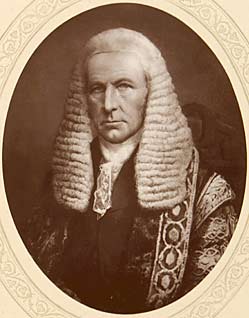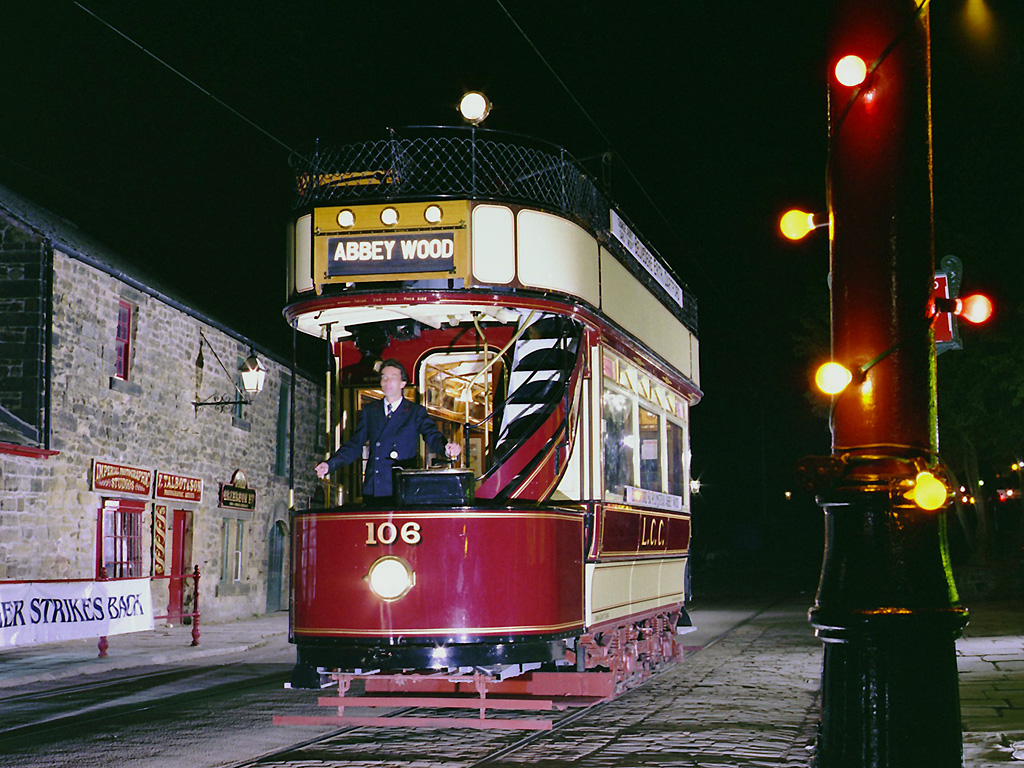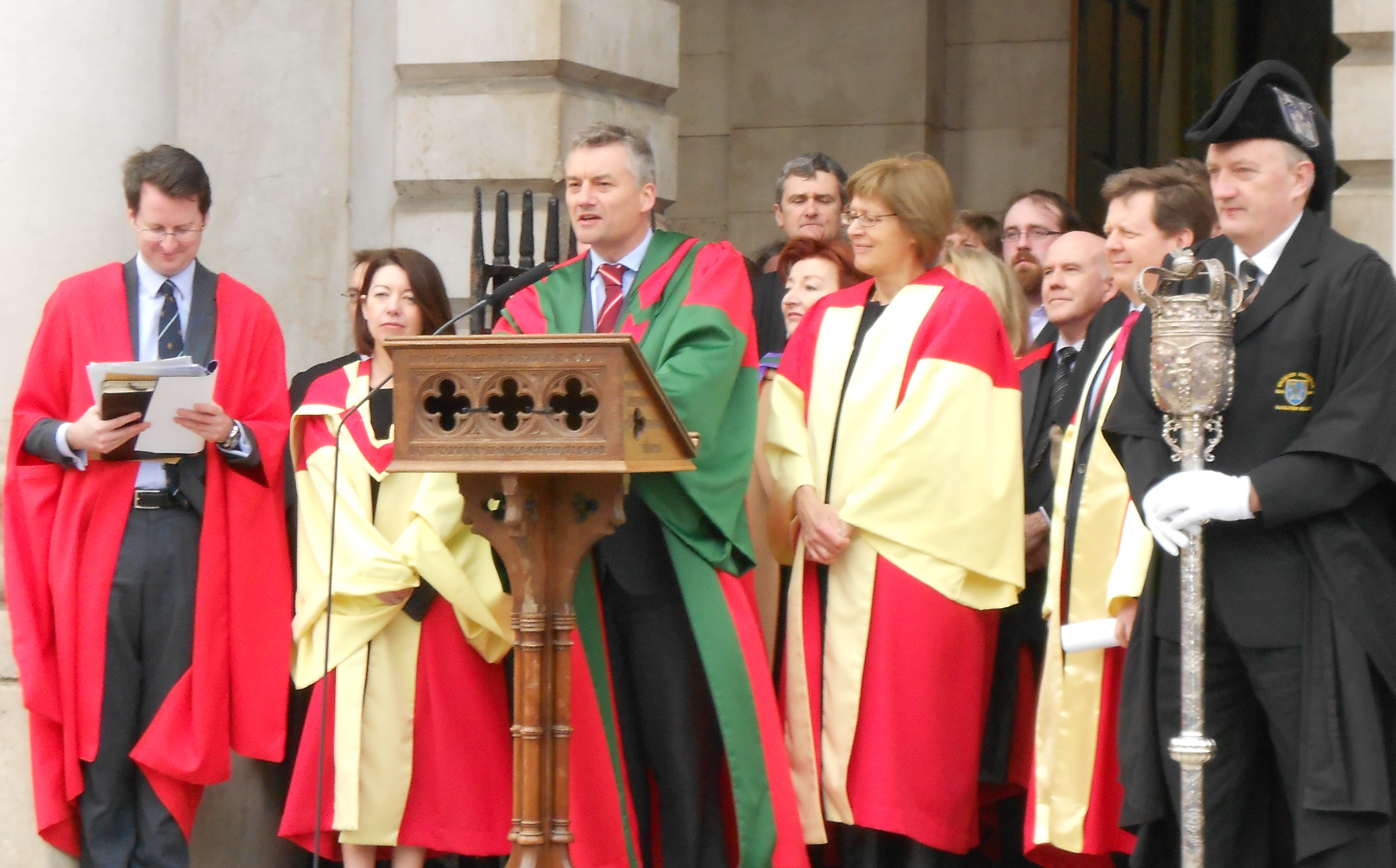|
Speaker Denison's Rule
Speaker Denison's rule is a constitutional convention established by John Evelyn Denison, who was Speaker of the British House of Commons from 1857 to 1872, regarding how the Speaker decides on their casting vote in the event of a tie in the number of votes cast in a division. In 1867, when a tie arose on a motion on Fellowships at Trinity College, Dublin, Denison gave his casting vote against the motion, declaring that any decision must be approved by the majority. The rule as subsequently adopted is that the Speaker, in any division upon a bill, should vote to leave a bill in its existing form. The principle is always to vote in favour of further debate, or, where it has been previously decided to have no further debate or in some specific instances, to vote in favour of the status quo. Thus, the Speaker will vote: * against the final reading of a bill (and against holding such readings immediately rather than in the future, to allow for time to consider the matter) * in ... [...More Info...] [...Related Items...] OR: [Wikipedia] [Google] [Baidu] |
Church Rate
The church rate was a tax formerly levied in each parish in England and Ireland for the benefit of the parish church. The rates were used to meet the costs of carrying on divine service, repairing the fabric of the church and paying the salaries of the connected officials. Except for a brief period during the Commonwealth of England in the 17th century, the raising of church rates has never been confirmed by statute. It was always a matter of common law. The compulsory levying of the church rate was abolished by statute in 1868; however, it remains on a voluntary basis in many parishes. Chancel repair liability in England, however, remains enforceable by law. History The church rates were set by the churchwardens together with the parishioners, who were duly assembled after proper notice had been posted in the church vestry or the church. The rates thus set were recoverable in the ecclesiastical court, or, if the arrears did not exceed £10 and no questions were raised as to the ... [...More Info...] [...Related Items...] OR: [Wikipedia] [Google] [Baidu] |
Regency Acts
The Regency Acts are Acts of the Parliament of the United Kingdom passed at various times, to provide a regent in the event of the reigning monarch being incapacitated or a minor (under the age of 18). Prior to 1937, Regency Acts were passed only when necessary to deal with a specific situation. In 1937, the Regency Act 1937 made general provision for a regent, and established the office of Counsellor of State, a number of whom would act on the monarch's behalf when the monarch was temporarily absent from the realm or experiencing an illness that did not amount to legal incapacity. This act, as modified by the Regency Acts of 1943 and 1953, forms the main law relating to regency in the United Kingdom today. An example of a pre-1937 Regency Act was the Care of King During his Illness, etc. Act 1811 which allowed Prince George (later King George IV) to act as regent while his father, King George III, was incapacitated. History Prior to 1937, there was no permanent, general pro ... [...More Info...] [...Related Items...] OR: [Wikipedia] [Google] [Baidu] |
James Lowther, 1st Viscount Ullswater
James William Lowther, 1st Viscount Ullswater, (1 April 1855 – 27 March 1949), was a British Conservative politician. He was Speaker of the House of Commons between 1905 and 1921. He was the longest-serving Speaker of the 20th century. Background and education The son of Hon. William Lowther, a grandson of William Lowther, 1st Earl of Lonsdale, and for 25 years Member of Parliament for Westmorland, and Alice, 3rd daughter of James Parke, 1st Baron Wensleydale, Lowther was educated at Eton College, King's College London where he took an Associateship degree, and at Trinity College, Cambridge, where he studied classics and law. Lowther became a barrister in 1879, eventually becoming a Bencher of the Inner Temple in 1906. Political career He was Member of Parliament for Rutland in 1883; contested Mid Cumberland in 1885; and sat for Penrith from 1886 to 1921. He was appointed 4th Charity Commissioner in 1887, and held junior ministerial office as Parliamentary Under-Sec ... [...More Info...] [...Related Items...] OR: [Wikipedia] [Google] [Baidu] |
London County Council Tramways
The London County Council Tramways was an extensive network of public street tramways operated by the London County Council, council throughout the County of London, UK, from 1899 to 1933, when they were taken over by the London Passenger Transport Board. Acquisition of tramways Under the Tramways Act 1870 (33 & 34 Vict. c. 78) local authorities were permitted to acquire privately operated tramways in their area after they had been operating for twenty-one years. Accordingly, in October 1891 the LCC decided to exercise its option to take over four and a half miles of route operated by the London Street Tramways Company. The company disagreed with the price offered by the council, and the sale did not go through until 1 March 1895. As the LCC had no powers to operate tramways itself, it put the operation of the line out to tender, which the incumbent London Streetways won, being the only applicant. In 1896 the London Street Tramways offered its network for sale to the county co ... [...More Info...] [...Related Items...] OR: [Wikipedia] [Google] [Baidu] |
William Court Gully, 1st Viscount Selby
William Court Gully, 1st Viscount Selby Her Majesty's Most Honourable Privy Council, PC, King's Counsel, KC (29 August 18356 November 1909) was a British lawyer and Liberal Party (UK), Liberal politician. He served as Speaker of the House of Commons (United Kingdom), Speaker of the House of Commons between 1895 and 1905. Background and education Gully was the son of James Manby Gully of Malvern, a successful physician who became involved in the mysterious death of Charles Bravo in April 1876. His grandfather was Daniel Gully, a Jamaican coffee planter. He was educated at University College School, London and then Trinity College, Cambridge, where he was president of Cambridge Union Society, the Union. He was called to the bar by the Inner Temple in 1860, went the northern circuit, and took silk in 1877. Political career In 1880 and 1883 Gully unsuccessfully contested Whitehaven (UK Parliament constituency), Whitehaven as a Liberal Party (UK), Liberal, but was elected for Carli ... [...More Info...] [...Related Items...] OR: [Wikipedia] [Google] [Baidu] |
Arthur Peel, 1st Viscount Peel
Arthur Wellesley Peel, 1st Viscount Peel, (3 August 182924 October 1912), was a British Liberal politician, who sat in the House of Commons from 1865 to 1895. He was Speaker of the House of Commons from 1884 until 1895, when he was raised to the peerage. Early life Peel was the fifth and youngest son of the Conservative Prime Minister Sir Robert Peel by his wife, Julia, the daughter of General Sir John Floyd, 1st Baronet. Peel was named after Arthur Wellesley, Duke of Wellington, and was educated at Eton and Balliol College, Oxford. Political career Peel was elected Liberal Member of Parliament (MP) for Warwick in the 1865 general election and held the seat until 1885, when it was replaced under the Redistribution of Seats Act 1885. From 1868 to 1871, he was Parliamentary Secretary to the Poor Law Board and then became Parliamentary Secretary to the Board of Trade. In 1873 to 1874, he was patronage secretary to the Treasury, and in 1880, he became Under-Secretary ... [...More Info...] [...Related Items...] OR: [Wikipedia] [Google] [Baidu] |
Representation Of The People Act
Representation of the People Act is a stock short title used in Antigua and Barbuda, The Bahamas, Bangladesh, Barbados, Belize, Ghana, Grenada, Guyana, India, Jamaica, Mauritius, Pakistan, Saint Vincent and the Grenadines, Trinidad and Tobago, the United Kingdom and Vanuatu for legislation dealing with the electoral system. Representation of the People Acts is a collective title for legislation relating to representation of the people, including Rating Acts and other Registration Acts. The title was first used in the United Kingdom in the Representation of the People Act 1832 and was adopted in other countries of, or formerly part of, the British Empire through the spread of the Westminster parliamentary system. Antigua and Barbuda * The Representation of the People Act 1975 (No 19) Bahamas * The Representation of the People Act, 1969 (No 40) * The Representation of the People Amendment Act, 1975 (No 25) * The Representation of the People (Amendment) Act, 1977 (No 3) * The R ... [...More Info...] [...Related Items...] OR: [Wikipedia] [Google] [Baidu] |
Legal Fiction
A legal fiction is a construct used in the law where a thing is taken to be true, which is not in fact true, in order to achieve an outcome. Legal fictions can be employed by the courts or found in legislation. Legal fictions are different from Presumption, legal presumptions which assume a certain state of facts until the opposite is proved, such as the presumption of legitimacy. The term ''legal fiction'' is sometimes used in a pejorative way. Jeremy Bentham was a famous historical critic of legal fictions. Proponents of legal fictions, particularly of their use historically, identify legal fictions as "scaffolding around a building under construction". Common law examples Adoption Adoption, Child adoption is a legal fiction in that the adoptive parents become the legal parents, notwithstanding the lack of a biological relationship. Once an order or judgment of adoption is entered, the biological parents become legal strangers to the child, legally no longer related nor with a ... [...More Info...] [...Related Items...] OR: [Wikipedia] [Google] [Baidu] |
Married Women's Property Act 1870
The Married Women's Property Act 1870 (33 & 34 Vict. c. 93) was an Act of Parliament (United Kingdom), act of the Parliament of the United Kingdom that allowed married women to be the legal owners of the money they earned and to inherit property. Background Before 1870, any money made by a woman (either through a wage, from investment, by gift, or through inheritance) instantly became the property of her husband once she was married, with the exception of a dowry. The dowry provided by a bride's father was to be used for his daughter's financial support throughout her married life and into her widowhood, and was also a means by which the bride's father was able to obtain from the bridegroom's father a financial commitment to the intended marriage and to the children resulting therefrom. It also was an instrument by which the practice of primogeniture was effected by the use of an entail. Thus, the identity of the wife became legally absorbed into that of her husband, effective ... [...More Info...] [...Related Items...] OR: [Wikipedia] [Google] [Baidu] |
Church Of Ireland
The Church of Ireland (, ; , ) is a Christian church in Ireland, and an autonomy, autonomous province of the Anglican Communion. It is organised on an all-Ireland basis and is the Christianity in Ireland, second-largest Christian church on the island after the Catholic Church in Ireland, Roman Catholic Church. Like other Anglican churches, it has retained elements of pre-Reformation practice, notably its episcopal polity, while rejecting the papal primacy, primacy of the pope. In theological and liturgical matters, it incorporates many principles of the Reformation, particularly those of the English Reformation, but self-identifies as being both Protestantism, Reformed and Catholicity, Catholic, in that it sees itself as the inheritor of a continuous tradition going back to the founding of Celtic Christianity, Christianity in Ireland. As with other members of the global Anglican communion, individual parishes accommodate differing approaches to the level of ritual and formality ... [...More Info...] [...Related Items...] OR: [Wikipedia] [Google] [Baidu] |
List Of Scholars Of Trinity College Dublin
This is a list of notable individuals elected as Scholars of Trinity College Dublin. Described by Trinity College as "the most prestigious undergraduate award in the country", Foundation Scholarship ("Schols") examinations have been held annually at Trinity since its establishment in 1592. Schols is awarded to those who achieve a first class honours average in a set of challenging voluntary examinations, held in January the week before Hilary term begins, which test a student's ability to "consistently demonstrate exceptional knowledge and understanding of their subjects". Benefits include waived fees, a small salary, rooms in college, dining rights at Commons, Seanad voting privileges and a post-nominal title, "Sch.". Typically, less than 1% of the undergraduate population is awarded the scholarship. Many scholars have gone on to acclaim in a range of fields over the past five centuries, both in academia and the wider world. Former scholars include two Nobel Prize winners, one ... [...More Info...] [...Related Items...] OR: [Wikipedia] [Google] [Baidu] |






